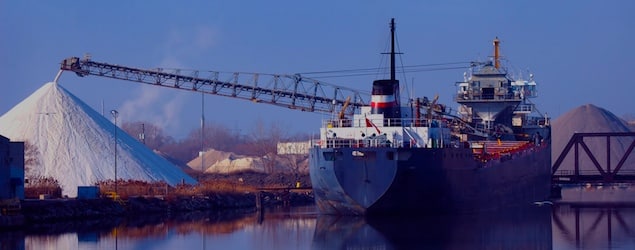Snow + Regulation = Unnecessarily Dangerous Roads

I’ve blogged before on how the Jones Act of 1920 forbids maritime shippers from carrying cargo from one U.S. port to another unless the ship is, in essence, owned and run by Americans. This law is an obvious attempt to insulate some American businessmen from competition. But protecting some businessmen from competition necessarily means preventing others from doing a job better or cheaper.
For an example of what this means in practice, consider how the Jones Act recently prevented the State of New Jersey from getting the salt it needed to clear its roads after a major snow storm.
As often happens after large snowfalls, New Jersey was running low on rock salt. A quick fix was for International Salt — the company contracted to provide salt to the state — to ship 40,000 tons of rock salt from their Maine supply center using an otherwise empty cargo ship already sitting in a Maine port. Problem is, this was not an American ship, so it was illegal to use it. So New Jersey instead had to contract with a much smaller, Jones Act-approved barge to make several trips between New Jersey and Maine.
This regulation-induced zigzagging not only wasted $700,000 in taxpayer money, it had real impact on the day-to-day lives of countless New Jersey residents by preventing the streets from being cleared in a timely manner. How many people were stuck in traffic because of snow-covered roads? How many were discouraged from going out during the storm? How many were late for work, for dinner, for picking up their kids after school? How many were injured or suffered property damage from car crashes on slippery roads?
This episode is like something right out of Atlas Shrugged. A snowstorm jams roads. Businessmen are ready and willing to solve the problem, but regulations prevent them doing so in the most logical fashion. So why do we have stupid laws like the Jones Act?
HT: Overlawyered.com









